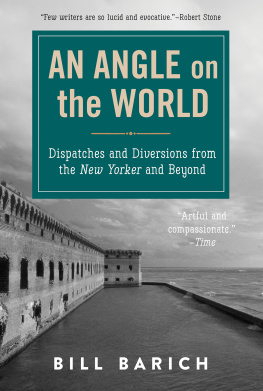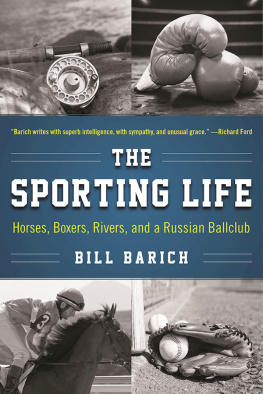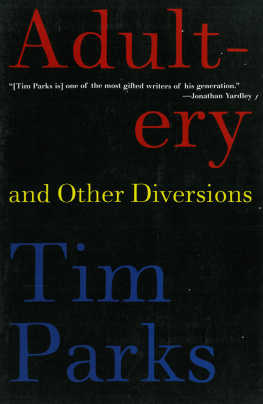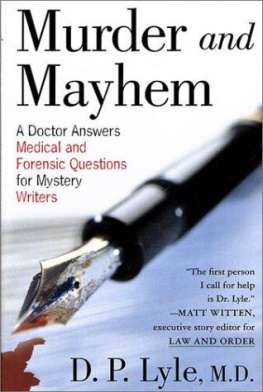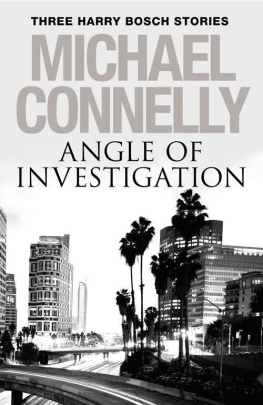Copyright 2016 by Bill Barich
The contents of this book first appeared, in slightly different form, in the New Yorker , as well as the New York Times, San Francisco Chronicle. San Francisco Examiner, Los Angeles Times, Irish Times, Narrative, Islands, Salon , and Outside .
All rights reserved. No part of this book may be reproduced in any manner without the express written consent of the publisher, except in the case of brief excerpts in critical reviews or articles. All inquiries should be addressed to Skyhorse Publishing, 307 West 36th Street, 11th Floor, New York, NY 10018.
Skyhorse Publishing books may be purchased in bulk at special discounts for sales promotion, corporate gifts, fund-raising, or educational purposes. Special editions can also be created to specifications. For details, contact the Special Sales Department, Skyhorse Publishing, 307 West 36th Street, 11th Floor, New York, NY 10018 or .
Skyhorse and Skyhorse Publishing are registered trademarks of Skyhorse Publishing, Inc., a Delaware corporation.
Visit our website at www.skyhorsepublishing.com.
10 9 8 7 6 5 4 3 2 1
Library of Congress Cataloging-in-Publication Data is available on file.
Cover design by Anthony Morais
Cover photograph courtesy of QT Luong/terragalleria.com
Print ISBN: 978-1-5107-0833-4
Ebook ISBN: 978-1-5107-0834-1
Printed in the United States of America
For Imelda
Table of Contents
Introduction
I once had a schoolteacher who joked that I was the most curious boy shed ever met. She meant that in the dictionary sense of eager to learn or know something rather than strange, unusual, or so I choose to believe, although I may have been guilty on both counts. Whatever the case, Ive spent much of my writing life indulging that curiosity, throwing myself into situations and subcultures to gain an education and acquire my own angle on the world. The dispatches collected here arose from that desire. All but one first appeared in the New Yorker , where my editors gave me the support and encouragement to tackle such in-depth reports.
The dispatches have a common thread. They all explore stories that the press had ignored or reported on in a desultory way, at least in my view. For years Id been reading about the Troubles in Northern Ireland, for instance, but the focus was always on the sensational aspects of the conflict. I had no idea what Belfast looked like or how the people of the city conducted their daily affairs, so I decided to spend three weeks there. My hope was to capture what Norman Mailer described as the feel of the phenomenon, or a palpable sensation of living in Ulster.
To keep from repeating the usual clichs, I avoided politicians, official sources, and other journalists. Instead I talked with greengrocers, butchers, newsagents, and so on, including a barber who swore hed never visit San Francisco, my hometown at the time, because he was scared of earthquakes, proving that fear is relative. I walked from my hotel near Queens University through the Catholic Falls and the Protestant Shankill, and heard from the locals how the paramilitaries operate and the price they extract from the citizens they supposedly protect. It soon became clear who reaped the biggest benefits from the sectarian divide.
Board-and-Care addressed the plight of the homeless in San Francisco. A great many suffered from a mental disorder. Government programs to help out were sadly lacking, so I looked elsewhere for a possible solution. A psychiatrist friend, an activist in the field, steered me to Chateau Agape, a Queen Anne Victorian in the Mission District, where twenty-seven chronic adult paranoid schizophrenics lived together in relative harmony.
The chateau struck me as a cost-effective model for what could and should be done in a caring society. Its owners, the Loopers, were heroes in my eyes, and so, too, was Manuel Velasquez (The Crazy Life), who labored to prevent teenage gang members in Los Angeles County from dying young in turf or drug wars.
The disheartening mess along our border with Mexico hasnt improved much since I wrote La Frontera. When I first arrived in San Ysidro, California, directly opposite Tijuana, I expected a tightly controlled perimeter as in the movies, but instead I witnessed an elaborate, never-ending game of cat-and-mouse. The border patrol was understaffed and overwhelmed, and its agents were almost powerless. So little has changed Id only have to include the Trump factor and the vigilante patrols to bring the story up-to-date. As long as theres work on offer, the migrants will continue to risk a crossing.
The Victims Wake came about when an editor at Outside asked if Id like to cover a murder trial in the Caribbean, in St. Vincent and the Grenadines, where a wealthy American couple stood accused of killing a water taxi operator named Jolly Joseph. If a jury found them guilty, they might hang from the gallows. I sat in the dusty old courtroom and listened as bewigged barristers argued the case, while islanders in their Sunday best observed and delivered a whispered commentary, trying not to laugh or applaud.
The pieces Ive grouped together as diversions offer lighter fare. Id probably never have met Jerry Garcia, if the New Yorker under Tina Brown hadnt doted on celebrities. When David Milch invited me to work on his HBO horse racing show Luck , sadly short-lived, I got a master class in screenwriting from a genius of the form and lots of laughs in the bargain. The trips I made to Barbados and Culebra were courtesy of Islands . The essays on Italy, my Peace Corps days in Nigeria, and the Haight-Ashbury add up to a fragmentary portrait of my often-confused youth, when the dream of being a writer seemed too farfetched to ever be realized.
An Angle On the World is meant to be a bedside book, one to dip into at random and at leisure. Hopefully, the reader will find much to enjoy and only a little to provoke. Even when investigating the most difficult subjects, Ive attempted to be as optimistic as common sense would allow. Looking back, as Satchel Paige advised us never to do, Im pleased to see that Ive made an adventure of my writing life and remain deeply grateful to all those who helped that miracle to happen.
One: Dispatches
Board and Care: San Francisco
C hateau Agape, San Francisco, seven oclock on a February morning. The air smells of bacon frying, coffee percolating. With a spatula, Leroy Looper eases an egg off a stove-top grill and onto a plate, then hands it to a woman who wears an old raincoat for a robe. Shes holding tightly to the collar, clinging to it for security. From a plastic tray, Leroy gives her two Mellaril pills and smiles at her in approval, pleased to see that her hair is neatly combed and her eyes are bright. Only yesterday, the woman was confused and frightened, unwilling to eat or to speak, and Leroys wife, Kathy, had to coax some nourishment into her by offering cups of hot chocolate.
You look real nice today, Carla, Leroy says to her, in a rich, preacherly voice, and this simple bit of praise seems to lift her off her feet. Meanwhile, he takes another egg from a cardboard carton and lets it rest for a moment on his palm. Against his skin, it resembles an oblong marble. He is a very big man of sixty-two, built on the scale of a retired pro-football tackle, and when he walks through the Tenderloin, a tough downtown district where he runs a hotel and works as a neighborhood organizer, the pimps and dealers scatter. A former addict himself, he spent twelve years of his youth strung out on heroin, bouncing from prison to prison, but he kicked his habit for good.

